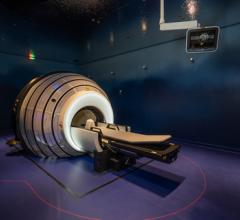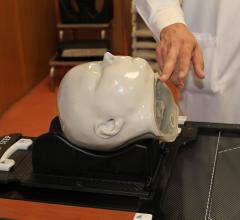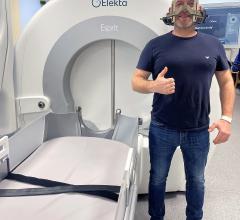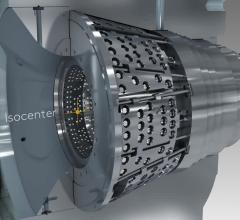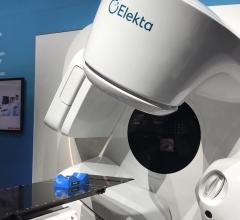September 23, 2008 – Cancer patients with tumors that have spread to the brain (brain metastases) who undergo stereotactic radiosurgery (SRS) and whole brain radiation have more than double the risk of developing learning and memory problems, compared to those who only have stereotactic radiosurgery, according to a randomized study presented at ASTRO 2008.
“Results of this study show that initial stereotactic radiosurgery alone, coupled with close observation, could become the standard of care for patients newly diagnosed with brain metastases to best preserve their neurocognitive function,” Eric L. Chang, M.D., lead author of the study and a radiation oncologist at M.D. Anderson Cancer Center in Houston, said. “Results of this study could change the practice of how brain metastases are managed in the United States.”
Stereotactic radiosurgery is a specialized type of external beam radiation therapy that pinpoints high doses of radiation directly on the cancer in a shorter amount of time than traditional treatments (one day, instead of several weeks). Whole brain radiation therapy treats the visible lumps of the cancer and the invisible tumor deposits that are so small they may not be seen on even a sensitive imaging test.
Therefore, the entire brain is treated to try to stop the spread of the tumors.
The study involved 58 patients who were newly diagnosed with one, two or three brain metastases and were randomized to receive stereotactic radiosurgery combined with whole brain radiation or stereotactic radiosurgery alone from January 2001 to September 2007.
The trial was halted after interim results showed that patients who received both stereotactic radiosurgery and whole brain radiation had a 49 percent decline in learning and memory functioning at four months, compared to patients who underwent stereotactic radiosurgery alone and who experienced a 23 percent decline in neurocognitive functioning. Neurocognitive outcome was measured by the ability of patients to immediately recall a list of 12 words after three attempts. For patients who received initial whole brain irradiation, nearly half of the patients lost the ability to recall five words from the same list over three attempts, compared to before they received the treatment.
For more information: www.astro.org
Source: American Society For Therapeutic Radiology and Oncology


 September 12, 2025
September 12, 2025 


